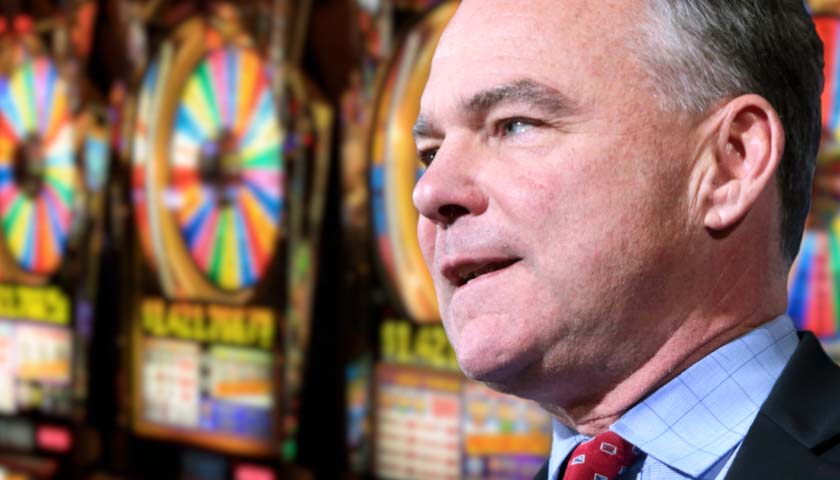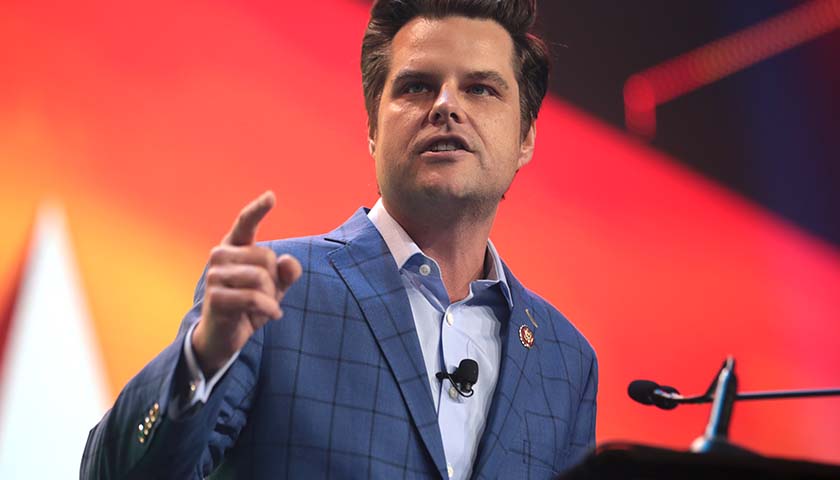Richmond voters are currently deciding if the ONE Casino +Resort proposal will be approved or not, and Senator Tim Kaine (D-Virginia) has said that he voted against the proposal.
“Senator Kaine voted on Monday, September 20. He voted against the casino proposal. He believes there are better ways to enhance economic development in Richmond,” Kaine’s office said in a statement.
In a press release, former Virginia Democratic Chairman Paul Goldman highlighted the statement, first reported by The Richmond Times-Dispatch.
“The Casino forces have been saying some ugly things about those who dare to publicly oppose their Casino or point out this truth: the proposal on the ballot is based on those going to the Casino LOSING 300,000,000 a year, every year, at this exploitative Casino, the overwhelming bulk of that money coming from Richmond residents or those in the local area,” Goldman wrote in the release.
Goldman is heading the Vote NO on RVA Casino Committee.
Last year, residents of several other cities approved building casinos in their cities; some of those proposals did not refer to a specific developer. But Richmond has narrowed down a list of developers after a period of public comment, with the Black-owned Urban One proposal in low-income Southside Richmond winning the official support of the city. That location was key for the proposal, according to Richmond City Councilmember Michael Jones, who said in May that most of the opposition was from people who disapproved morally, or who didn’t want to see a casino in their own more successful neighborhoods.
Jones said he met with leaders of the proposals. “I was like, ‘Real estate, real estate, real estate. Location, location, location, location. You’re in Northside, that’s not going to fly. You’re on the Southside, you got a chance. And that was the truth.”
Proponents including Jones highlighted the economic benefit the casino would bring. The project will lead to 5,600 construction and permanent jobs with a $55,000 average yearly salary and a $15-an-hour starting wage, according to a fact sheet. According to a project website, the resort will be a majority Black-owned business, with a 50 percent workforce diversity goal for construction, a 50 percent workforce diversity goal, and a 50 percent hiring goal among Richmond residents.
Senator Joe Morrissey (D-Richmond) represents the district that includes the proposed casino site. He said that even if he held moral objections to gambling or alcohol, he’d support the proposal because of the benefit to the city and its residents.
“I think it is a game changer like no other industry in the last 150 years that can transform South Richmond. The only other industry that comes close in my opinion is the Civil War,” Morrissey told The Virginia Star. “We do not have, in South Richmond here, one decent restaurant. Industry is lacking. Many people, and I’m not exaggerating when I say this, there are tens of thousands of people in Richmond that have never ventured over to South Richmond.”
He disagreed with the argument from opponents that the casino would primarily profit off Richmond residents. Instead, he said casino profit would be powered by out-of-state tourists — who would then spend at other Richmond businesses, improving infrastructure, housing, and help Southside businesses including minorities. He said the proposed casino would generate $500 million worth of taxes over the next decade that would mostly be used in Southside.
“The evidence is that retail sales in other non-connected industries spike when a casino goes up,” Morrissey said.
Nonproft Richmond For All (RFA) is highlighting the Urban One developers’ partnership with Peninsula Pacific, which owns Virginia gambling powerhouse the Colonial Downs Group.
Richmond For All previously helped kill the Mayor Levar Stoney-supported Navy Hill coliseum project, which would have been partially funded by taxpayer money. At the end of 2020, some of those developers announced plans to develop a privately-funded mixed-use sports and concert arena in neighboring Henrico County. Richmond officials have still been looking for a way to attract that kind of venue within the city limits. Stoney is supporting the privately-funded casino proposal, which includes includes 2,000 slot machines, 110 table games, a 250-room hotel, a 3,000 capacity event center, and a 55 acre park and greenspace, according to the proposal’s website.
At the end of July, RFA said that in canvassing of 175 Southside doors, 45 percent of residents opposed the project and 25 percent were undecided.
“The results are clear. There is no broad-based neighborhood support for this casino,” RFA’s Political Director Quinton Robbins, who is also an 8th district resident, said in the release. “Casinos are an extractive industry that will rob our community just to make a few folks wealthy. After canvassing for the past couple of weeks, it is clear to me that my neighbors are worried about how this casino will hurt the place that we call home.”
Morrissey said he thought there was community support in South Richmond for the proposal.
“What I hear on the ground, the pulse of the community is that they’re going to support it,” he said.
He thinks Richmond as a whole will also support the proposal.
“I don’t want to jinx things, but I want to say I don’t think it will be a close vote because I believe that Richmonders will do there homework,” he said.
– – –
Eric Burk is a reporter at The Virginia Star and The Star News Network. Email tips to [email protected].




